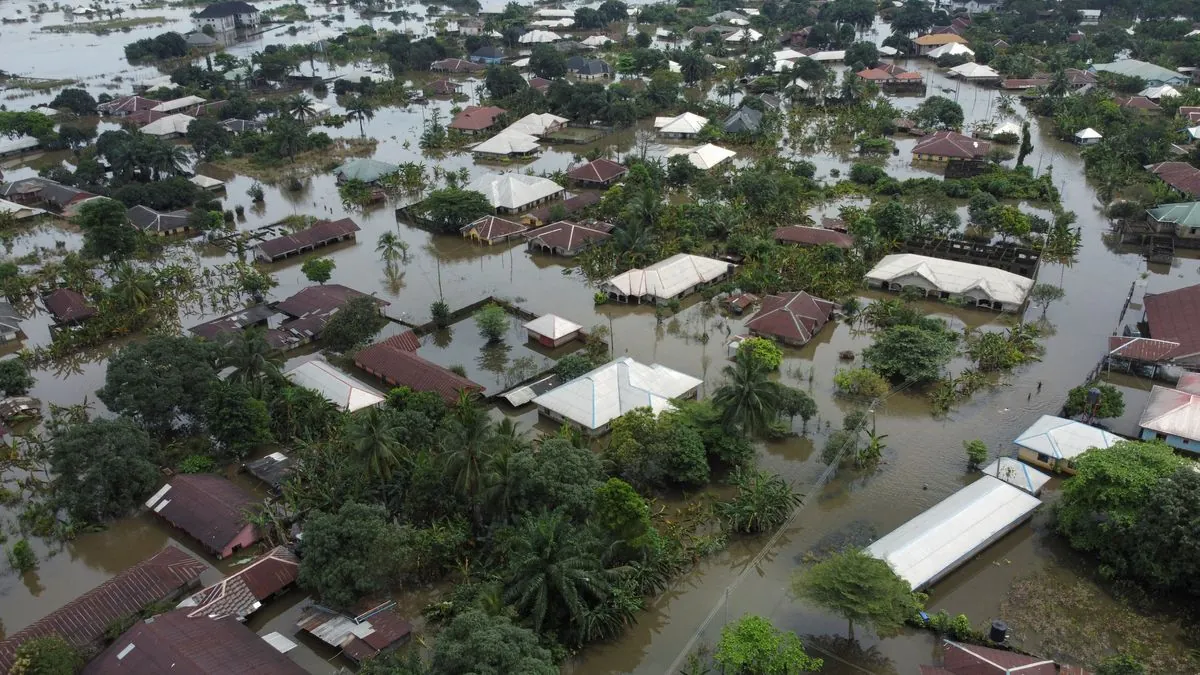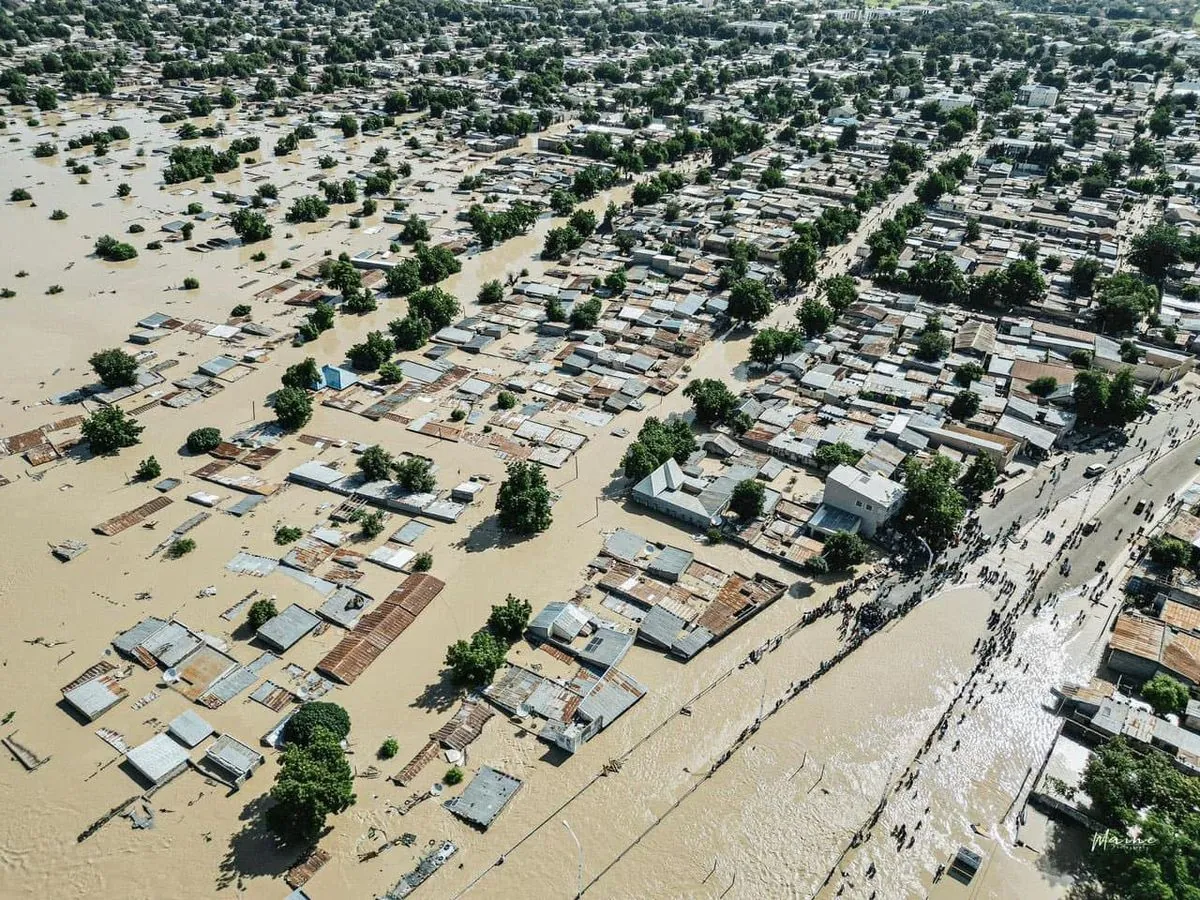Devastating Floods Ravage West and Central Africa, Displacing Millions
Catastrophic flooding in West and Central Africa has killed over 1,000 people and displaced millions. The disaster exacerbates existing crises in Nigeria, Chad, Mali, and Niger, overwhelming local authorities and aid efforts.

Unprecedented flooding has struck West and Central Africa, causing widespread devastation and exacerbating existing humanitarian crises. The disaster has claimed over 1,000 lives and displaced millions across the region, with Nigeria, Chad, Mali, and Niger bearing the brunt of the impact.
In Maiduguri, the capital of Borno State in Nigeria, residents have witnessed scenes of utter destruction. Houses have been completely swept away, and the city's main prison walls were washed away by rising waters from an overflowing dam. The flooding has also led to the escape of dangerous animals from the Borno State Museum Park, adding to the chaos.

The scale of the disaster is staggering. Over four million people have been affected by flooding in West Africa this year, a threefold increase from the previous year, according to UN reports. The death toll continues to rise, with at least 230 reported dead in Nigeria, 265 in Niger, 487 in Chad, and 55 in Mali.
Saleh Bukar, a 28-year-old Maiduguri resident, recounted the terrifying night when the floods struck:
"Water is flooding everywhere! They were shouting: 'Everybody come out, everybody come out!'"
The flooding has overwhelmed local authorities, with over 400,000 people displaced in Nigeria alone. The World Food Programme has established kitchens to provide food for the displaced in Maiduguri, while USAID has contributed more than $3 million in humanitarian assistance to the region.
However, many victims feel abandoned. Harira Adamou, a 50-year-old single mother of six from Agadez, Niger, described the destruction of her mud hut and the lack of support she has received:
"The rooms are destroyed; the walls fell down. It's a big risk to live in a mud hut but we don't have the means to build concrete ones."
The floods have intensified existing challenges in the region. Borno State has been grappling with a Boko Haram insurgency for over a decade, which has claimed more than 35,000 lives. The recent flooding has further strained resources and complicated humanitarian efforts.
Climate experts warn that Africa, despite contributing minimally to global greenhouse gas emissions, is among the most vulnerable to extreme weather events. The World Meteorological Organization estimates that the cost of adapting to such events in sub-Saharan Africa could reach $30-50 billion annually over the next decade.
As forecasts predict more rain across the region, authorities warn that additional flooding is expected. The disaster underscores the urgent need for increased climate resilience and support for vulnerable communities in West and Central Africa.


































